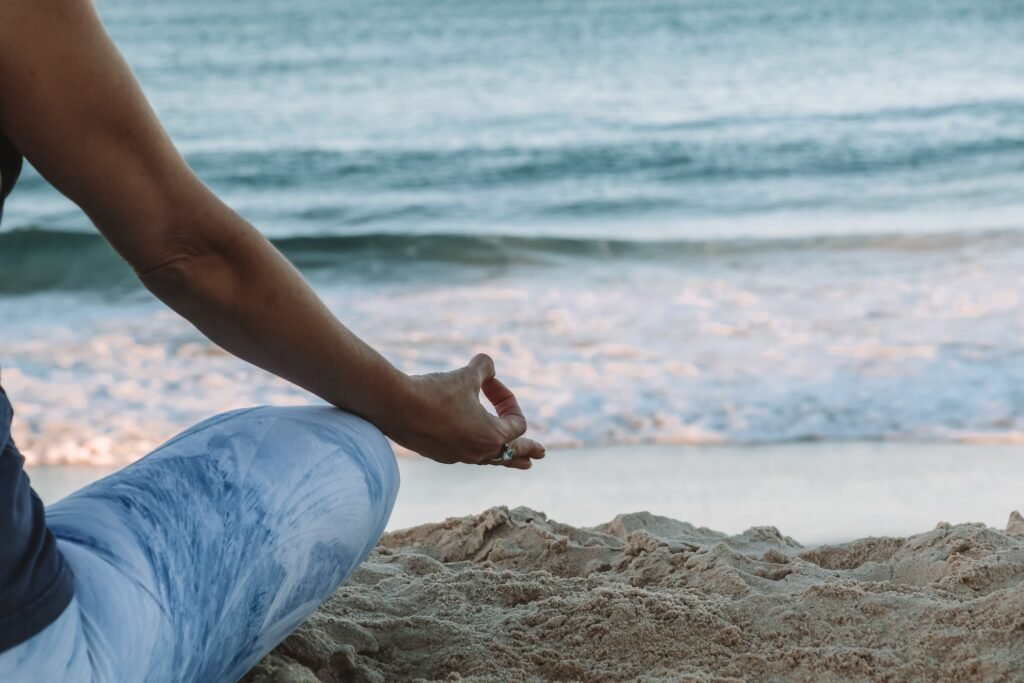Imagine a world where you have the power to instantly soothe your mind and body, alleviating stress and tension with just a simple technique. Enter the Herbert Benson Relaxation Response, a groundbreaking method designed to counteract the negative effects of stress. Developed by renowned physician, Dr. Herbert Benson, this technique has taken the world by storm, helping individuals from all walks of life find a state of calm and tranquility. In this article, we will explore the essence of the Herbert Benson Relaxation Response and how it can revolutionize your well-being. Get ready to discover a path to inner peace that is just a breath away.

What is the Herbert Benson Relaxation Response?
The Herbert Benson Relaxation Response is a natural bodily state of deep relaxation that counteracts the harmful effects of stress. It is a physiological and psychological process that promotes a sense of calm and overall well-being. This response was discovered and developed by Dr. Herbert Benson, a renowned cardiologist and pioneer in mind-body medicine.
Definition
The Herbert Benson Relaxation Response can be defined as the body’s ability to elicit a state of deep relaxation in response to specific techniques or stimuli. It involves a series of physiological changes that promote physical and mental relaxation, such as reduced heart rate, lowered blood pressure, and decreased muscle tension. This response is triggered by engaging in relaxation techniques, such as meditation, deep breathing, or progressive muscle relaxation.
Origins and Background
Dr. Herbert Benson, intrigued by the mind’s ability to affect the body’s physiological response, began studying the relaxation response in the 1960s. His research was motivated by the observation that traditional practices, such as yoga and meditation, seemed to have profound effects on individuals’ health and well-being. Dr. Benson wanted to investigate the scientific basis behind these practices and understand how they could be utilized to promote relaxation and reduce stress.
Through his groundbreaking research, Dr. Benson discovered that various techniques, such as mantra meditation and breath awareness, could elicit the relaxation response in individuals. He published his findings in his seminal book, “The Relaxation Response,” which brought this concept to the forefront of medical and scientific discourse. Since then, the Herbert Benson Relaxation Response has become widely recognized and integrated into various fields, including medicine, psychology, and wellness.
The Physiology of the Relaxation Response
To understand the power of the Herbert Benson Relaxation Response, it is crucial to comprehend the underlying physiological mechanisms that occur during this state of relaxation.
How the Body Reacts to Stress
When faced with stressful situations, the body activates its stress response system, commonly known as the “fight-or-flight” response. This response evolved as a survival mechanism, allowing our ancestors to respond quickly to life-threatening situations. However, in our modern world, chronic stress can activate this response too frequently and lead to negative health consequences.
The Role of the Autonomic Nervous System
The autonomic nervous system (ANS) plays a vital role in regulating the body’s physiological processes, including the stress response. It consists of two branches: the sympathetic nervous system (SNS) and the parasympathetic nervous system (PNS). The SNS initiates the fight-or-flight response, while the PNS is responsible for the opposite response – the relaxation response.
The Relaxation Response vs. the Fight-or-Flight Response
The relaxation response and the fight-or-flight response are opposing physiological states. While the fight-or-flight response prepares the body for action by increasing heart rate, blood pressure, and stress hormones, the relaxation response does the opposite. It promotes a calm and relaxed state by slowing down the heart rate, lowering blood pressure, and reducing the levels of stress hormones in the body.
Techniques to Elicit the Relaxation Response
There are several techniques that individuals can use to elicit the Herbert Benson Relaxation Response. These techniques capitalize on the mind-body connection to induce a state of deep relaxation and tranquility.
Meditation
meditation is one of the most widely recognized and practiced techniques for eliciting the relaxation response. It involves focusing the mind on a particular object, sound, or mantra, while bringing attention to the present moment. This practice has been shown to reduce stress and anxiety, improve concentration, and promote a sense of well-being.
Deep Breathing
Deep breathing exercises are another effective way to stimulate the relaxation response. By consciously slowing down and deepening the breath, individuals can activate the body’s relaxation mechanisms. Deep breathing increases oxygen intake, calms the mind, and helps relax tense muscles.
Progressive Muscle Relaxation
Progressive muscle relaxation involves systematically tensing and then releasing different muscle groups in the body. This technique helps individuals become more aware of muscle tension and teaches them how to release it consciously. By progressively relaxing each muscle group, the body enters a state of deep relaxation and tranquility.
Guided Imagery
Guided imagery is a relaxation technique that involves using visualizations to promote relaxation and reduce stress. Individuals are guided through a series of mental images that evoke positive emotions and calmness. This technique taps into the power of the mind to create a sense of peacefulness and well-being.
Self-Hypnosis
Self-hypnosis is a practice that allows individuals to induce a state of deep relaxation by using self-suggestion and imagery. By entering a hypnotic state, individuals can access their subconscious mind and reframe negative thought patterns. Self-hypnosis can be a powerful tool for promoting relaxation, managing stress, and improving overall well-being.
Other Relaxation Techniques
In addition to the aforementioned techniques, there are numerous other relaxation practices that can elicit the Herbert Benson Relaxation Response. These include yoga, aromatherapy, biofeedback, and mindfulness exercises. Each technique offers its own unique benefits and can be tailored to suit individuals’ preferences and needs.
Benefits of the Herbert Benson Relaxation Response
The Herbert Benson Relaxation Response has a multitude of benefits for both physical and mental well-being. By regularly eliciting this response, individuals can experience a wide range of positive effects.
Stress Reduction
One of the primary benefits of the relaxation response is its ability to reduce stress levels. Chronic stress can have detrimental effects on the body and mind, leading to various health issues. By engaging in relaxation techniques and regularly activating the relaxation response, individuals can effectively manage and reduce their stress levels, promoting a sense of calm and balance.
Improved Physical Health
The relaxation response has been shown to have numerous positive effects on physical health. Regular practice of relaxation techniques can help lower blood pressure, reduce heart rate, improve digestion, boost immune function, and relieve muscle tension. These physical benefits contribute to overall wellness and can help prevent the onset of chronic diseases.
Enhanced Mental Well-being
In addition to its physical benefits, the relaxation response also enhances mental well-being. This state of deep relaxation helps calm the mind, reduce anxiety, and improve overall mood. Regularly eliciting the relaxation response promotes a sense of inner peace, clarity, and emotional stability.
Pain Management
The relaxation response can serve as a powerful tool for pain management. By inducing a state of deep relaxation, individuals can alleviate physical discomfort and reduce the perception of pain. This can be particularly beneficial for individuals with chronic pain conditions or those recovering from surgeries or injuries.
Reduced Anxiety and Depression
Anxiety and depression are prevalent mental health conditions that can significantly impact individuals’ quality of life. The relaxation response has been shown to reduce symptoms of anxiety and depression, providing individuals with a natural and holistic approach to managing these conditions. Regular practice of relaxation techniques can help individuals cultivate a sense of calm, improve emotional well-being, and reduce the reliance on medication.

Applications and Integration into Everyday Life
The Herbert Benson Relaxation Response can be integrated into various aspects of everyday life to promote well-being and enhance overall quality of life.
Stress Management
Given its innate ability to reduce stress, incorporating the relaxation response into daily routines can be highly beneficial for stress management. Taking a few moments each day to engage in relaxation techniques can help individuals combat the effects of stress, achieve a greater sense of balance, and improve their ability to cope with daily challenges.
Complementary Treatment for Medical Conditions
The relaxation response can serve as a valuable complementary treatment for various medical conditions. It can be particularly helpful for individuals with hypertension, cardiovascular diseases, chronic pain, insomnia, and anxiety disorders. Integrating relaxation techniques alongside traditional medical treatments can enhance overall outcomes and provide individuals with a holistic approach to their healthcare.
Enhancing Performance and Productivity
The relaxation response can also be utilized to enhance performance and productivity in various areas of life. By incorporating relaxation techniques into pre-performance routines, individuals can reduce performance anxiety, improve focus and concentration, and enhance their overall performance in activities such as sports, public speaking, or creative endeavors.
Creating a Relaxation Routine
To fully harness the benefits of the relaxation response, it is beneficial to establish a regular relaxation routine. This can involve dedicating a specific time each day for relaxation techniques, creating a peaceful environment, and incorporating various techniques that resonate with individual preferences. Making relaxation a priority in daily life can lead to long-term benefits and an increased sense of well-being.
Scientific Validation and Research
The Herbert Benson Relaxation Response has been extensively studied and validated through scientific research. Several landmark studies have demonstrated its effectiveness in promoting relaxation and improving various aspects of health and well-being.
Early Studies on the Relaxation Response
In the early years of the research on the relaxation response, Dr. Herbert Benson conducted numerous studies that laid the foundation for its scientific validation. These studies involved monitoring physiological changes in individuals practicing relaxation techniques, such as meditation. The findings consistently showed that the relaxation response led to decreased heart rate, lowered blood pressure, and reduced muscle tension.
Contemporary Research Findings
Since Dr. Benson’s pioneering studies, there has been a significant body of research that supports and expands on the scientific validity of the relaxation response. Contemporary studies have explored the effects of relaxation techniques on a wide range of health conditions, including hypertension, anxiety, insomnia, chronic pain, and depression. The results consistently demonstrate the positive effects of the relaxation response on these conditions, as well as overall well-being.

Critiques and Controversies
While the Herbert Benson Relaxation Response has gained widespread recognition and acceptance, there are some critiques and controversies surrounding its implementation and effectiveness.
Placebo Effect
One common critique is that the relaxation response may be simply a placebo effect. Skeptics argue that the perceived benefits of relaxation techniques are merely psychological and do not have any physiological basis. However, numerous scientific studies have shown tangible physiological changes that occur during the relaxation response, suggesting that it is not solely a placebo effect.
Lack of Standardization
Another criticism revolves around the lack of standardization in relaxation techniques. Different practitioners and researchers may utilize various methods and approaches, making it difficult to compare and evaluate the effectiveness of specific techniques. While this is a valid concern, it also highlights the importance of finding relaxation techniques that resonate with individual preferences and needs, rather than adhering strictly to a standardized approach.
Individual Variations
Individual variations in the response to relaxation techniques can also be a subject of controversy. While many individuals achieve profound relaxation and experience various benefits, others may find it more challenging to elicit the relaxation response. This variability does not negate the overall effectiveness of relaxation techniques but emphasizes the importance of finding personalized approaches that work best for each individual.
Training and Professional Resources
To fully utilize and integrate the Herbert Benson Relaxation Response into daily life, individuals may seek support and guidance from trained relaxation therapists.
Certified Relaxation Therapists
Certified relaxation therapists are professionals who specialize in teaching and guiding individuals through relaxation techniques. They are trained to assess individual needs, develop personalized relaxation plans, and provide support throughout the relaxation process. Seeking the guidance of a certified relaxation therapist can enhance the effectiveness of relaxation techniques and ensure a safe and tailored approach.
Online Resources and Apps
In today’s digital age, there is a plethora of online resources and mobile applications that offer guided relaxation exercises and techniques. These resources can be accessed from the comfort of one’s home and provide a convenient way to learn and practice relaxation techniques. It is important to choose reputable sources and applications that align with evidence-based practices.
Books and Literature
Various books and literature have been published on the subject of the Herbert Benson Relaxation Response. These resources provide in-depth information on the science behind relaxation techniques, practical guidance on incorporating these techniques into daily life, and personal stories of individuals who have benefited from the relaxation response. Reading books and literature on the topic can serve as a valuable source of inspiration and knowledge.
Integration with Other Complementary Practices
The Herbert Benson Relaxation Response can be integrated with other complementary practices to amplify its effects and promote overall well-being.
Yoga and Mindfulness
Yoga and mindfulness practices naturally align with the goals of the relaxation response. Integrating yoga postures, breathing exercises, and mindfulness meditation into a relaxation routine can further enhance the relaxation response and promote physical and mental well-being.
Acupuncture and Acupressure
Acupuncture and acupressure are ancient healing practices that target specific points on the body to restore balance and promote relaxation. Combining these practices with the relaxation response can provide a holistic approach to stress reduction and overall wellness.
Massage Therapy
Massage therapy is a hands-on approach that utilizes various techniques to relax muscles, improve circulation, and reduce tension. Incorporating massage therapy into a relaxation routine can deepen the relaxation response and provide additional physical and mental benefits.
Tai Chi and Qigong
Tai Chi and Qigong are traditional Chinese practices that involve slow, flowing movements and deep breathing exercises. These practices promote relaxation, balance, and harmony within the body and mind. Combining Tai Chi and Qigong with the relaxation response can foster a profound sense of tranquility and well-being.
The Future of the Herbert Benson Relaxation Response
The Herbert Benson Relaxation Response has paved the way for a paradigm shift in how we approach stress reduction and holistic well-being. As the field of mind-body medicine continues to evolve, there are exciting prospects for the future development and integration of the relaxation response.
Potential Areas of Development
Research exploring the neural mechanisms underlying the relaxation response holds promise for further understanding and development. Advances in neuroimaging techniques can shed light on the specific brain regions and pathways involved in eliciting the relaxation response and provide insights into personalized approaches for individuals.
Incorporation into Mainstream Medicine
As scientific evidence continues to support the benefits of the relaxation response, there is growing recognition and integration of these techniques within mainstream medicine. Healthcare providers are increasingly incorporating relaxation techniques into their practice and recommending them as complementary treatments for various medical conditions.
New Research Directions
The field of mind-body medicine is ever-evolving, and new research directions are continually being explored. Future studies may delve deeper into the effects of the relaxation response on specific populations, such as children, older adults, and individuals with complex medical conditions. Additionally, there is potential for exploring the integration of technology, such as virtual reality or biofeedback devices, to enhance the effectiveness of relaxation techniques.
In conclusion, the Herbert Benson Relaxation Response offers a powerful and natural approach to managing stress, improving overall well-being, and enhancing the mind-body connection. By incorporating relaxation techniques into everyday life, individuals can tap into their body’s innate capacity for deep relaxation and experience the multitude of benefits it offers. Whether through meditation, deep breathing, guided imagery, or other relaxation techniques, embracing the relaxation response can promote balance, peace, and resilience in the face of life’s challenges.

